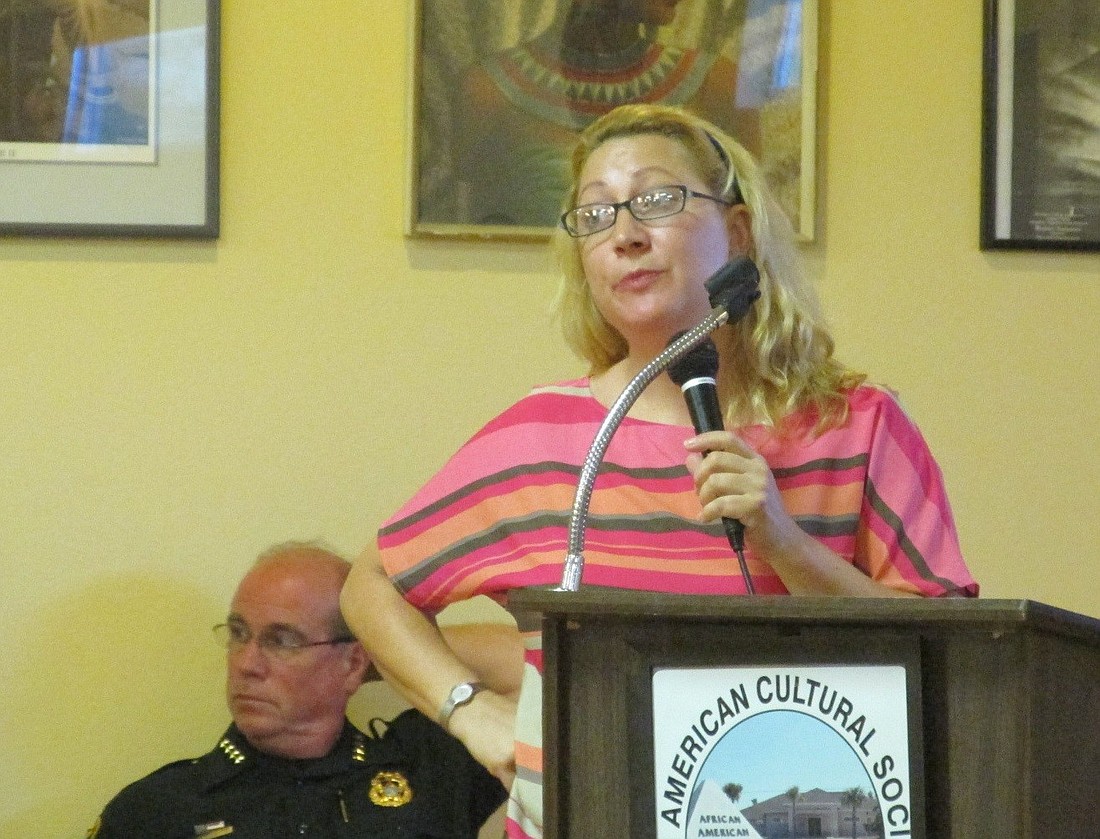- April 23, 2024
-
-
Loading

Loading

The numbers have improved over the last school year, but black students are still being disciplined at rates disproportionate to their population in Flagler County schools, according to Stephanie Langer, a staff attorney with the Southern Poverty Law Center.
Black students account for 16% of the Flagler County School District’s student population, but in the 2012-2013 school year, 30% of suspensions in the district are issued for black students, Langer said.
That’s a slight decrease from the 2010-2011 school year, in which black students accounted for 31% of the in- and out-of-school suspensions. And, because suspension numbers have gone down, there were fewer students — black and white — who spent time out of school, a good sign for all students, Langer said.
It’s been almost a year since the center filed a complaint against five school districts in Florida, including Flagler County. The complaint said Flagler’s schools punish black students more frequently and more severely than white students. The complaint prompted an investigation led by the U.S. Office of Civil Rights, which is currently underway, though it is moving more slowly than anticipated because proving disparate treatment is a difficult feat, Langer said.
Langer and other officials from the organization gave an update about the complaint Tuesday night at the African American Cultural Society. About 100 community members attended.
Suspension rates are troublesome partly because time out of the classroom affects a student’s ability to succeed academically, leading to higher numbers of students being held back or dropping out of school. In Flagler County, 25% of students held back a grade were black, as of April 28.
But suspension also increases the likelihood of a student being arrested, Langer said. From 2011-2012, 34% of youth arrested in Flagler County were black, which is disproportionate to number of black youths in the county, the SPLC argues.
“Any contact a children have with the criminal justice system increase the chance of an arrest in the future,” Langer said, criticizing how little first-time offenders are issued civil citations rather than arrests. Doing so would address disciplinary problems without putting children directly into the juvenile justice system.
During the meeting, Flagler County Sheriff Jim Manfre spoke on the matter, agreeing with Langer that the civil citation program is not being implemented as it should be.
‘Why isn’t it working? Because nobody knows about it; we haven’t trained our deputies in it,” Manfre said. “We need to, and it’s my responsibility as sheriff, to educate our deputies on the civil citation program, and we’re in the process of doing that.”
Manfre said that currently, even the agency’s incident reports make issuing a civil citation difficult to do, and that he is working on revisions. As another alternative to arrests, Manfre pointed out teen court, a program in which adolescents devise a service plan for their discipline.
If the teens meet the terms of their plan, the charges against them are dropped.
“We need to help children see law enforcement as the person who helps you, rather than arrests you,” Manfre said.
In the meantime, the federal Office of Civil Rights is continuing its investigation into the Southern Poverty Law Center’s complaint, which was not meant to launch a lawsuit, but rather to open a conversation with school officials about how to correct the problem.
However, Langer said she has asked to talk with school officials repeatedly with no response.
“They always say, ‘We’re fine; we don’t need to mediate; we haven’t done anything wrong,’” Langer said, asking that community members continue to raise the matter with school officials. “We have definitely seen some improvement this year, and that’s because of what you have done in keeping the conversation open.”